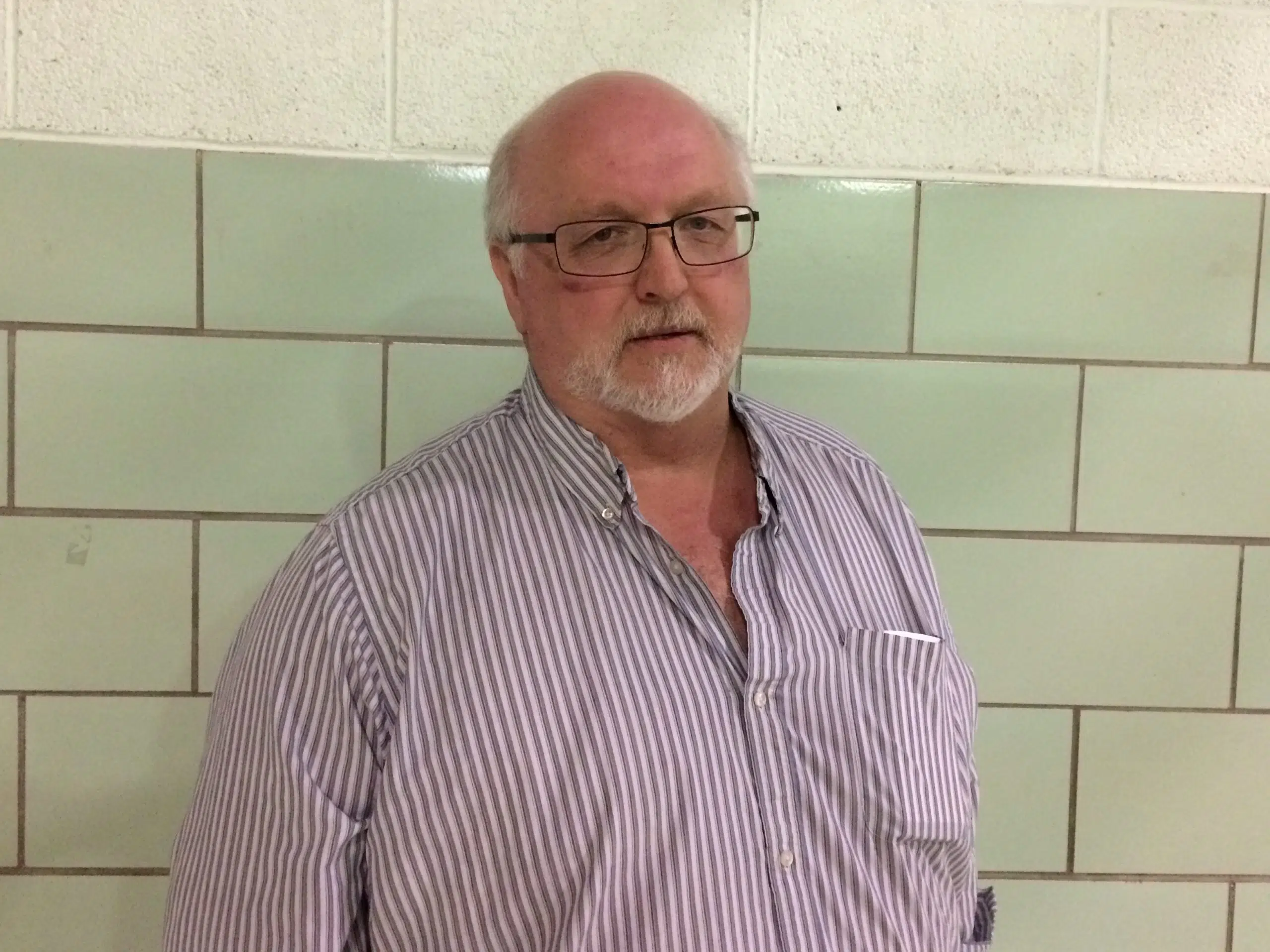
Rob Fowler chairs the District Education Council of the Anglophone South School District. (Photo: Brad Perry/CHSJ News)
The Anglophone South School District Education Council has rejected its 2019-20 operating budget.
Rob Fowler, who chairs the council, said they want to send a message to the province about underfunding.
Fowler said the district struggled to balance its books because of ongoing budget shortfalls.
“We did, in fact, come up with a balanced budget, but the feeling was that we really needed to impress upon Fredericton the struggle to get to that point,” said Fowler in a phone interview.
There are a number of areas which are contentious year after year, Fowler said, including educational assistants, or EAs.
“We are currently underfunded to the point of, I believe it’s around 60 educational assistants that we have on-staff but were not funded for by the department,” he said.
The district also has a funding shortfall in ‘replacement costs’ — a line item which the province puts in place for covering off any staff members who are out.
Fowler said they were also short funding for as many as 20 full-time equivalent teachers at one point.
“New Brunswick has a world-class inclusive education system, which we’re all quite proud of, but when you look at the funding, it’s very difficult to maintain our goals when we can’t even afford to put the proper number of EAs in the system,” he said.
District Can’t Run Deficit
Because school districts cannot run a deficit, Fowler said they have to cut in other areas to balance the books.
Fowler described it as a challenging process, noting there are certain areas which they cannot make changes to.
“Most of our $244-million budget is made up of salary expenses, all governed by collective bargaining agreements, so there’s nothing you can do about that, that’s a committed cost,” he said.
Fowler said his school district is not the only one dealing with these problems, noting the Anglophone East district did not approve an expenditure plan because they were unable to balance their budget.
In addition to rejecting the budget, the council intends to send a letter to the province outlining their concerns.
“The message here is we really need to take a long, hard look at what we’re doing, how we’re funding, what we choose to value as worthwhile exercises to go through to arrive at what we want to do, how we want to deliver it, when we want to deliver it, and fund it accordingly.”







